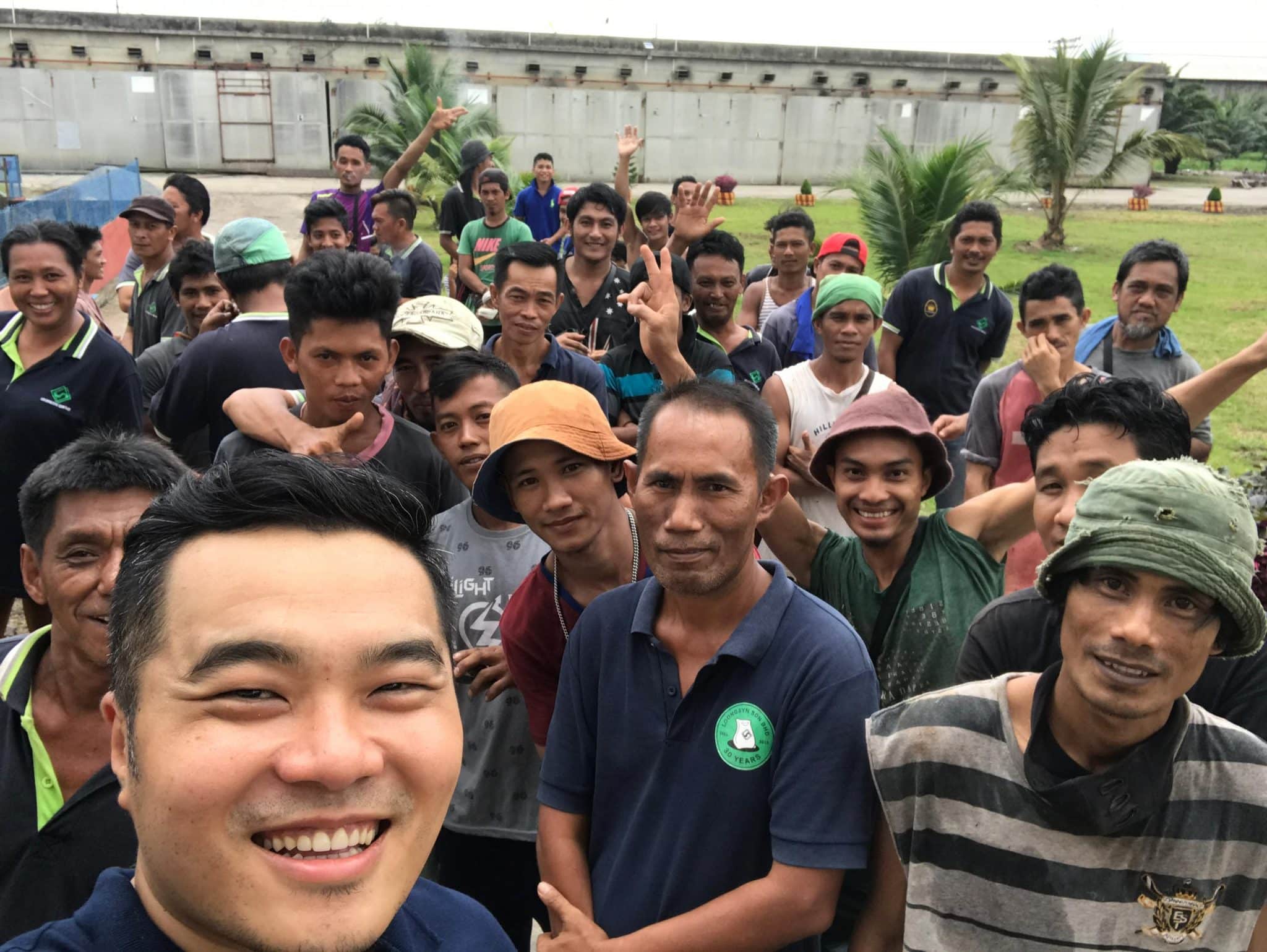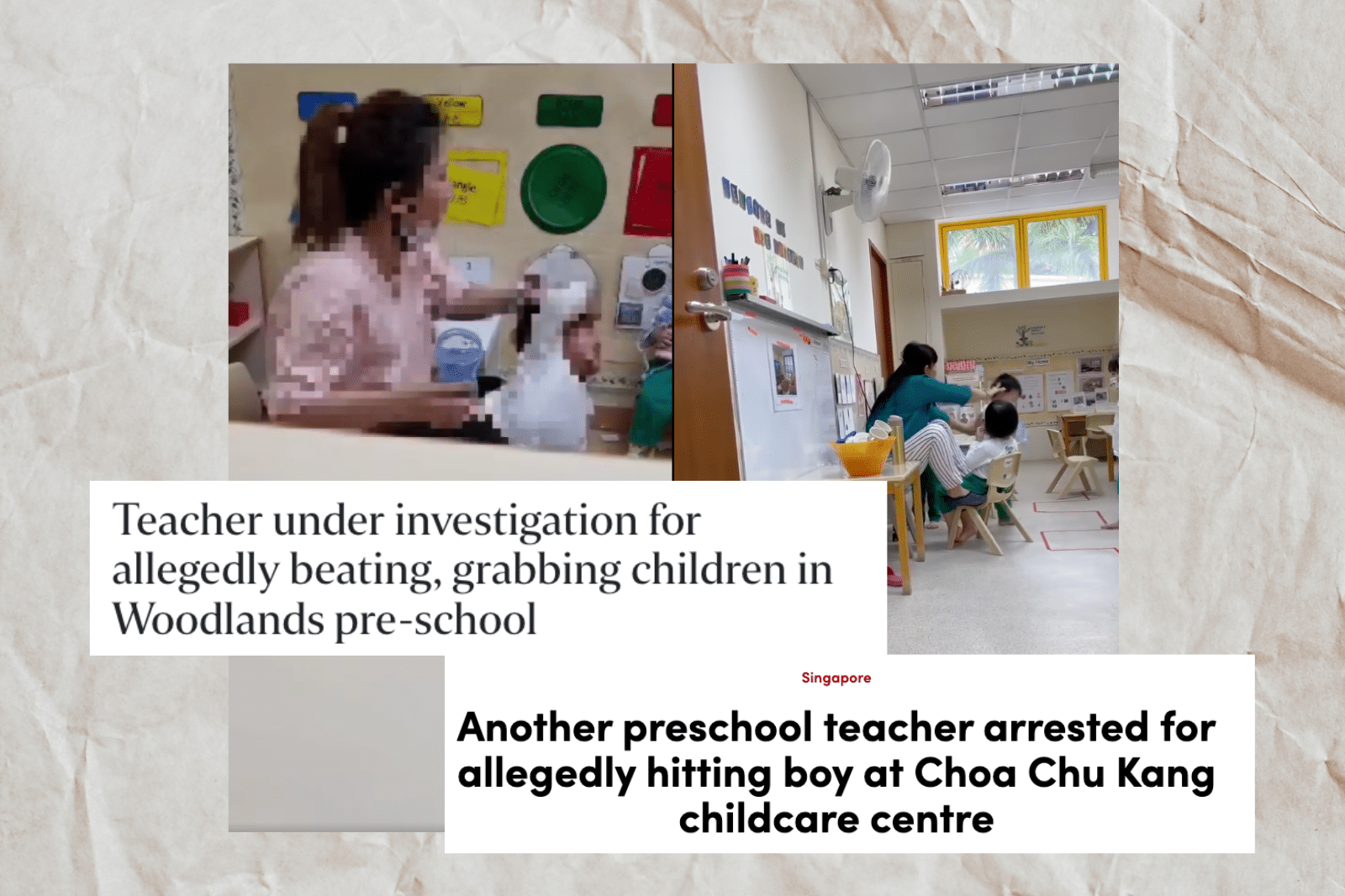“We want each student to know their worth”: Esther Thu, principal of school serving over 700 stateless children
Via the Salt&Light Malaysia Desk
Angel Yong & Michelle Chun, Faithour // May 8, 2023, 5:39 pm
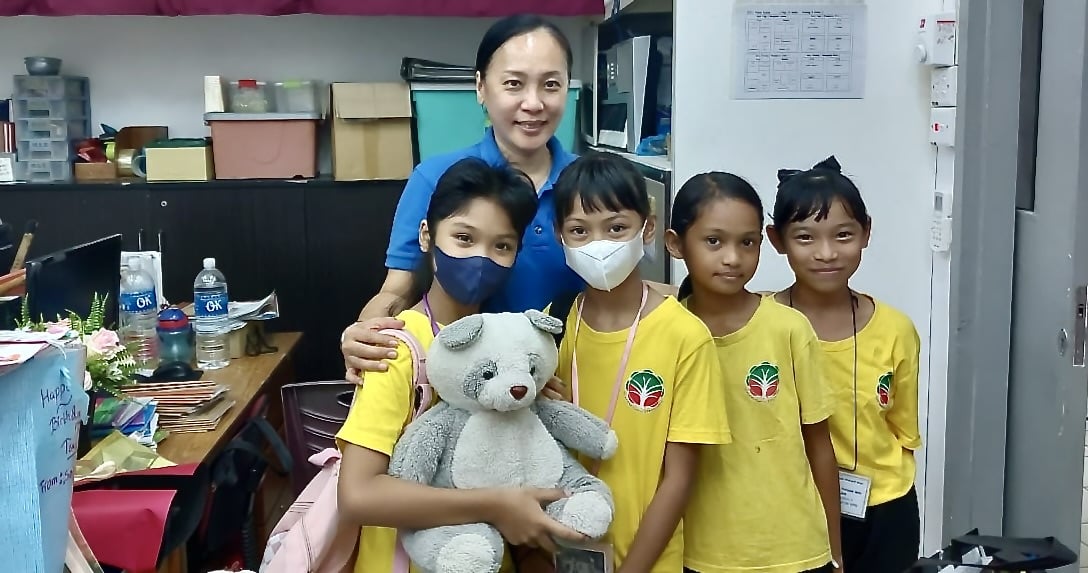
Fondly known as Madam Esther to her students, this passionate educator oversees 13 teachers who live among the stateless community so that they can make home visits to discuss their students’ progress or counsel parents. All photos courtesy of Esther Thu.
“Why do you want to help those people?” It’s a common question asked of Esther Thu, the principal of a school for stateless children in the Malaysian town of Tawau, Sabah.
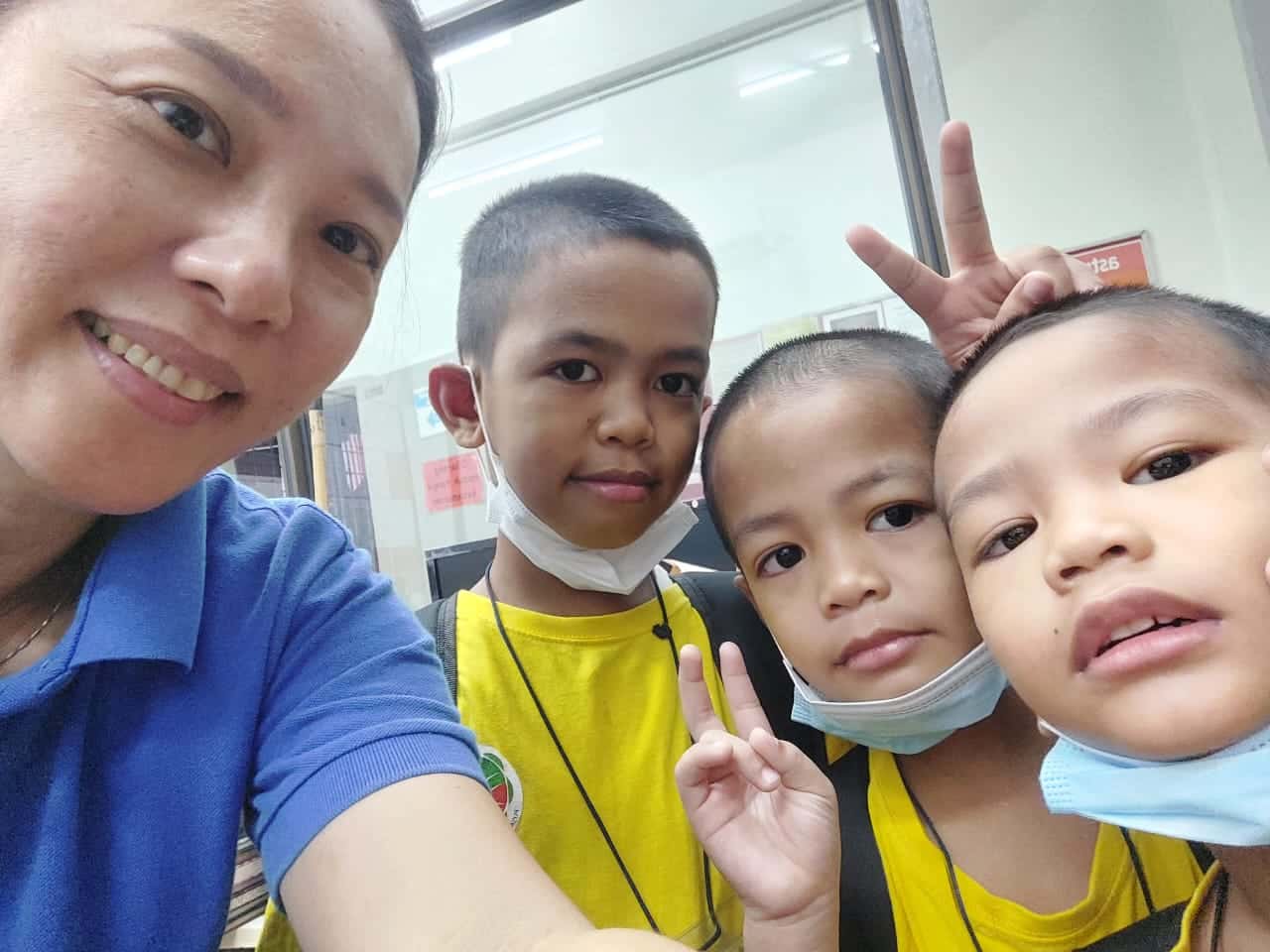
“Every student has his or her own story,” says Esther Thu, the principal of Pusat Alternatif Bimbingan Grace, a school for stateless children in Tawau, Sabah.
Known as Madam Esther to students and their families, the passionate educator has been a teacher at Pusat Alternatif Bimbingan Grace (PABG) since 2012.
“I believe I have to live the life God has purposed for me.”
She became the school principal in 2020.
PABG is the only school in Malaysia licensed by the Ministry of Education to teach primary-aged stateless children.
Opened by the Calvary Love Foundation and wholly owned by Calvary City Church Tawau,
PABG currently sees over 700 students receiving an education.
Teaching stateless (undocumented) children comes with its own set of challenges. It requires a new level of empathy, grit and, for Esther, a greater calling she has found through her faith.
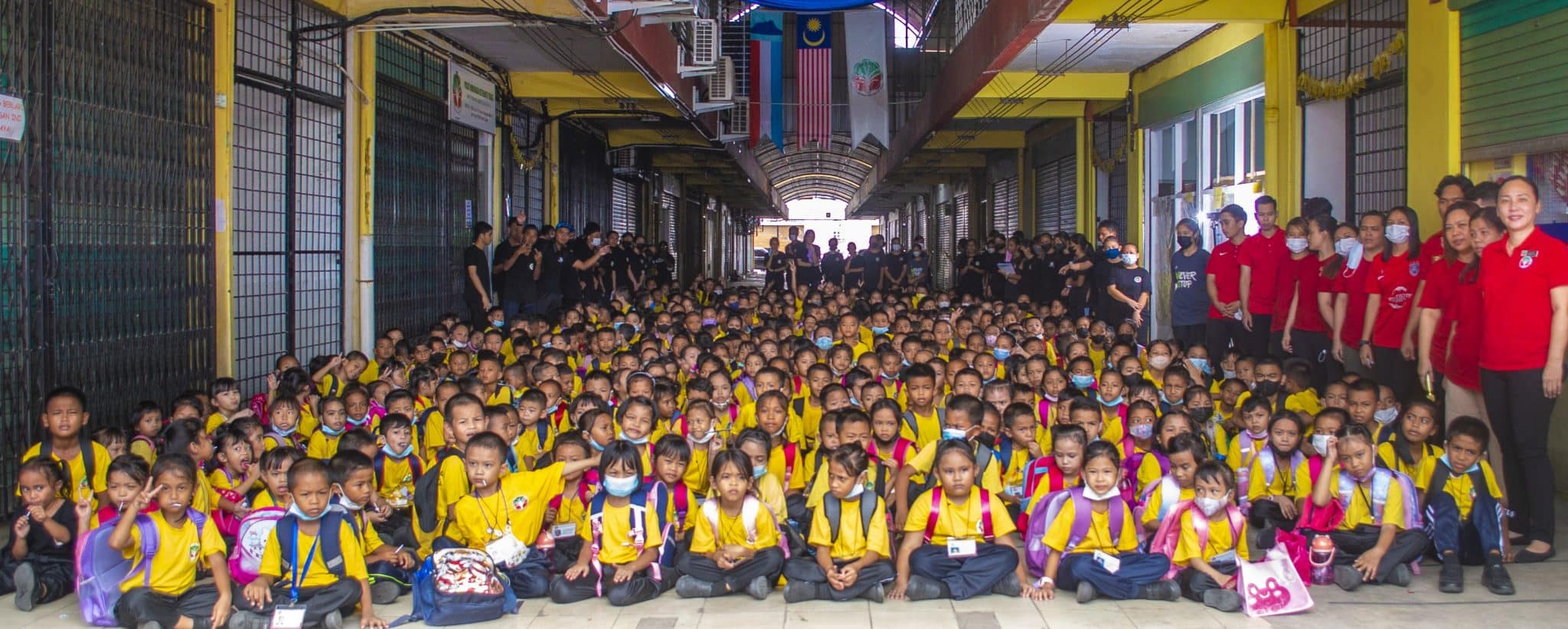
Opened in 2010 by Calvary Love Foundation, PABG is now a haven of education and hope for Tawau’s stateless children.
“When you are a child of God, you will discover what God has called you to do. And, as a Christian, I believe I have to live the life God has purposed for me,” she said.
Discovering Jesus in the early years
Esther grew up with loving parents who did their best to provide her with a simple but happy childhood.
Her mother was a vegetable seller, while her father worked out of town. She fondly remembers helping at her mother’s stall after school, treasuring the times she had with her father and spending many evenings by the riverside with family and neighbours.
She realised that Christianity is not a one-time choice, but a journey one must determine to continue walking in.
“I didn’t grow up in a Christian family and lived a very ordinary life.
“It was only in high school that friends introduced me to this Person called Jesus Christ, and eventually, I accepted Him into my heart,” Esther said.
Through the years, she realised that Christianity is not a one-time choice, but a journey one must determine to continue walking in.
Her desire to love Jesus and obey him eventually led her to first work in church before becoming a homemaker to raise her children.
It was only in 2012 that she stepped into PABG, first as a helper and then as a teacher.
Empowering stateless children with education
When PABG first opened, its founder Rev Teh Yung Huat faced criticism and accusations of wanting to help “non-locals” whom many felt had nothing to contribute to society.
“Without options, many resort to theft, vice and other illegal activities for an income.”
The coastal town of Tawau is home to a large stateless community, and local sentiments are mixed. But for Rev Teh, Esther and the PABG team, education acts as both the key to breaking out of poverty and a prevention tool against vice.
“Without identity cards, stateless children are not entitled to enter Malaysian schools and often end up working in plantations, car workshops and factories. Without options, many resort to theft, vice and other illegal activities for an income,” Esther said.
At first, she had no intention of staying long-term with the centre, which had opened just two years earlier.
“I just wanted to help out here and there, which is why I started helping as a half-day teacher,” she recalled.
But she soon realised the power of education, and that there were many areas needing improvement. As a half-day teacher, she was not able to implement sustainable changes, so she requested to join the team in a full-time capacity.
Staying faithful with limited resources
“Our goal is not to teach our students how to write a perfect essay or ace a big, international exam. It’s about being able to carry a conversation, hold a steady job and support themselves when they are out in society,” she explained.
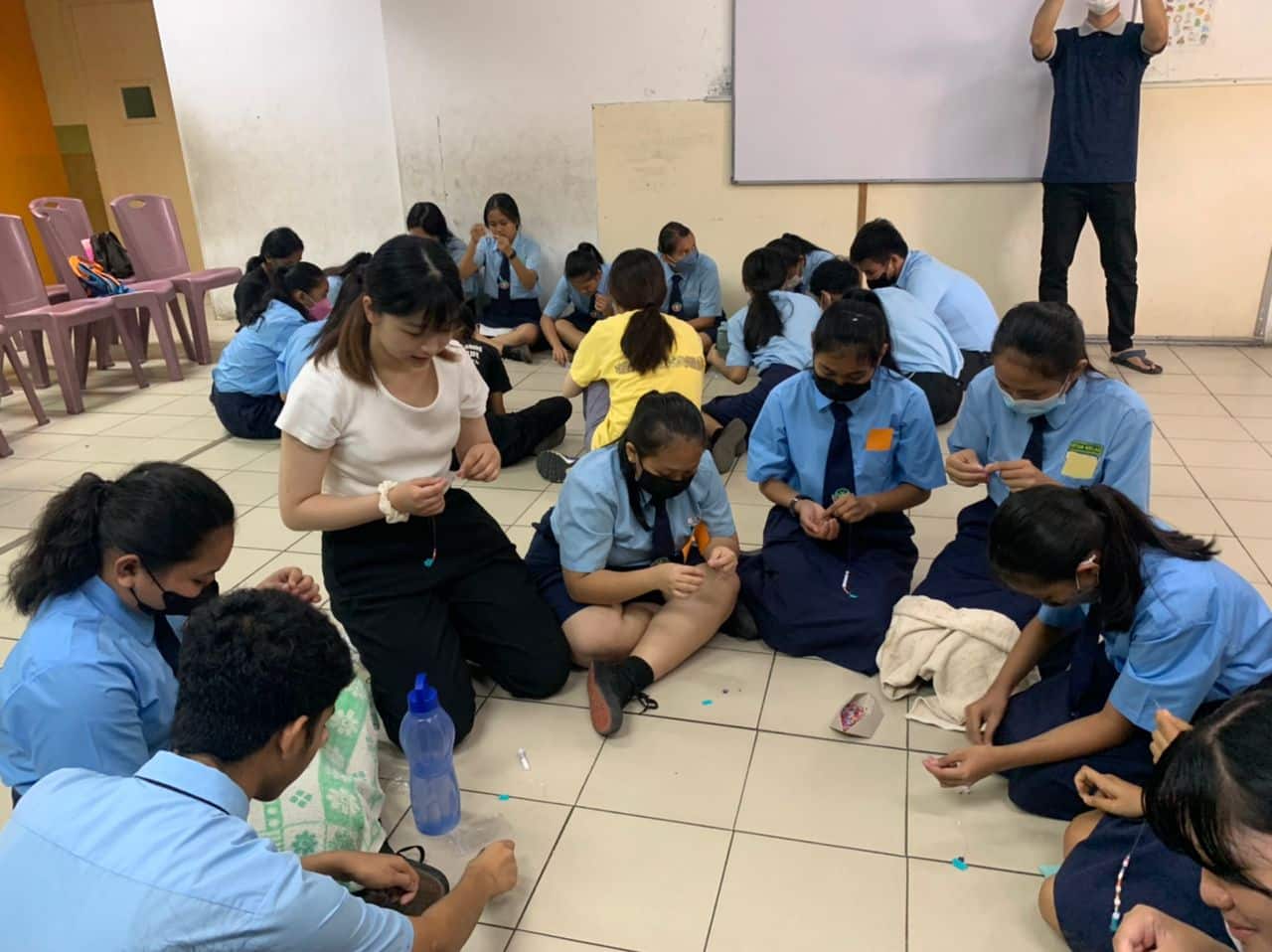
PABG is the only school in Malaysia licensed by the Ministry of Education to teach primary-aged stateless children. It received its license in 2015 and serves over 700 stateless children today.
School fees are payable on a case-by-case basis. Esther said most families pay what they can and for the hardcore poor, both fees and school books are fully sponsored.
“It’s about being able to carry a conversation, hold a steady job and support themselves when they are out in society.”
Some families, she revealed, have five or six children and cannot afford to pay for all of their children’s education.
“So we subsidise the fees, but ask that parents pay at least RM5-10 (SGD 1.50-3) every month to ensure they absorb some of the responsibility.”
The curriculum taught at PABG includes a basic foundation in Malaysia’s most-spoken languages: Bahasa Malaysia, English and Chinese. The centre also teaches music and soft skills.
With more than 700 students at present, PABG spreads its classes across five two-storey shop lots.
With a hint of sadness, Esther says limitations in space and resources (PABG only has 13 teachers on staff) have hindered them from accepting new students.
“We have a perpetual waiting list and many parents have begged us to allow their children to be admitted mid-year, but we simply cannot take in any more at the moment,” she said.
“You don’t do this for fun”
Investing your time and resources into the stateless community is not something you do for fun, Esther says firmly.
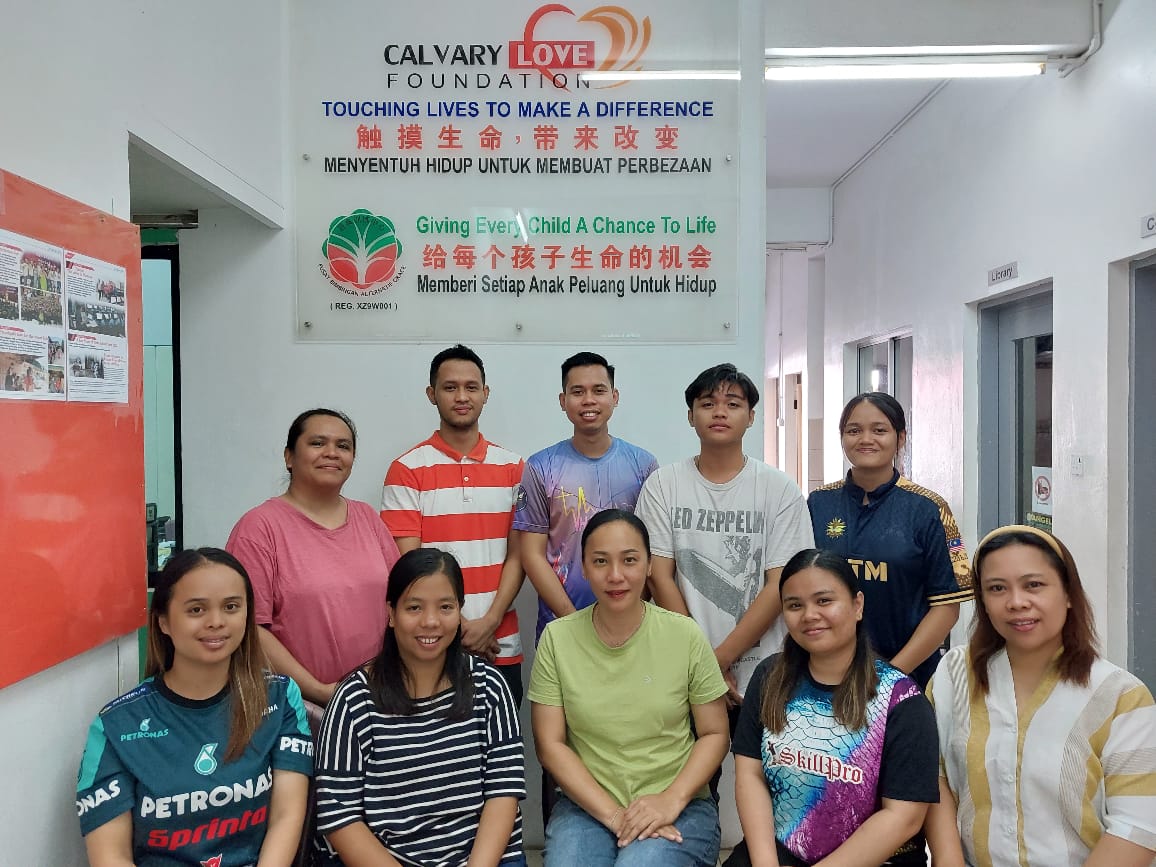
Although resources are limited, PABG’s teachers find ways to promote healthy, stable environments for children to learn and grow.
“This is a job that requires both commitment and persistence. You don’t do this for fun or on a whim, because the demands are very different from being a conventional education provider,” she said.
“Our teachers are not only teachers, at times they have to be a student’s mother, friend, doctor and wear many other hats.”
As most of the students’ parents are illiterate and uneducated, teachers carry the entire weight of educating the students.
The school also provides meals and transportation for some students on school days.
Teachers live within the stateless community, making home visits to discuss students’ progress or counsel parents on the importance of education for their children.
They are dedicated and passionate, often spending free hours and weekends with students and their families.
“Our teachers are not only teachers, at times they have to be a student’s mother, friend, doctor and wear many other hats,” Esther shared.
“They try their best to do whatever they can to help the students, not because they want anything in return but simply because they care for and love these children.”
Every success story keeps them going
Walking with stateless children and families can be discouraging and difficult. A huge challenge is ensuring students complete their education, as stateless communities often face sudden changes or life stressors.
It’s common for a student to drop out, at times without informing the school.
“The children whose families did not have mobile phones or internet connections we lost completely.”
Some go back to their home countries while others have to follow their parents who move to where work opportunities are.
Some students are also forced to stop school and go to work because of their family’s financial constraints.
“It was especially tough during the pandemic. We tried to continue classes online, but the children whose families did not have mobile phones or internet connections we lost completely. Many also dropped out to work,” Esther revealed.
Amid such difficulties, every success story is a reminder for Esther and her teachers that their efforts are not in vain.
She shares these stories proudly; it is evident they mean much to her.
“One of our students returned to the Philippines and is now in university. Another returned to his home country and eventually became a firefighter.
“We have also had around seven students who went back to their villages and continued their studies. We heard they have been performing with flying colours,” she said.
Compassion drives action
According to Esther, Malaysians often complain about the presence of stateless communities, but she hopes more people will step up to impact these vulnerable children and make a difference.
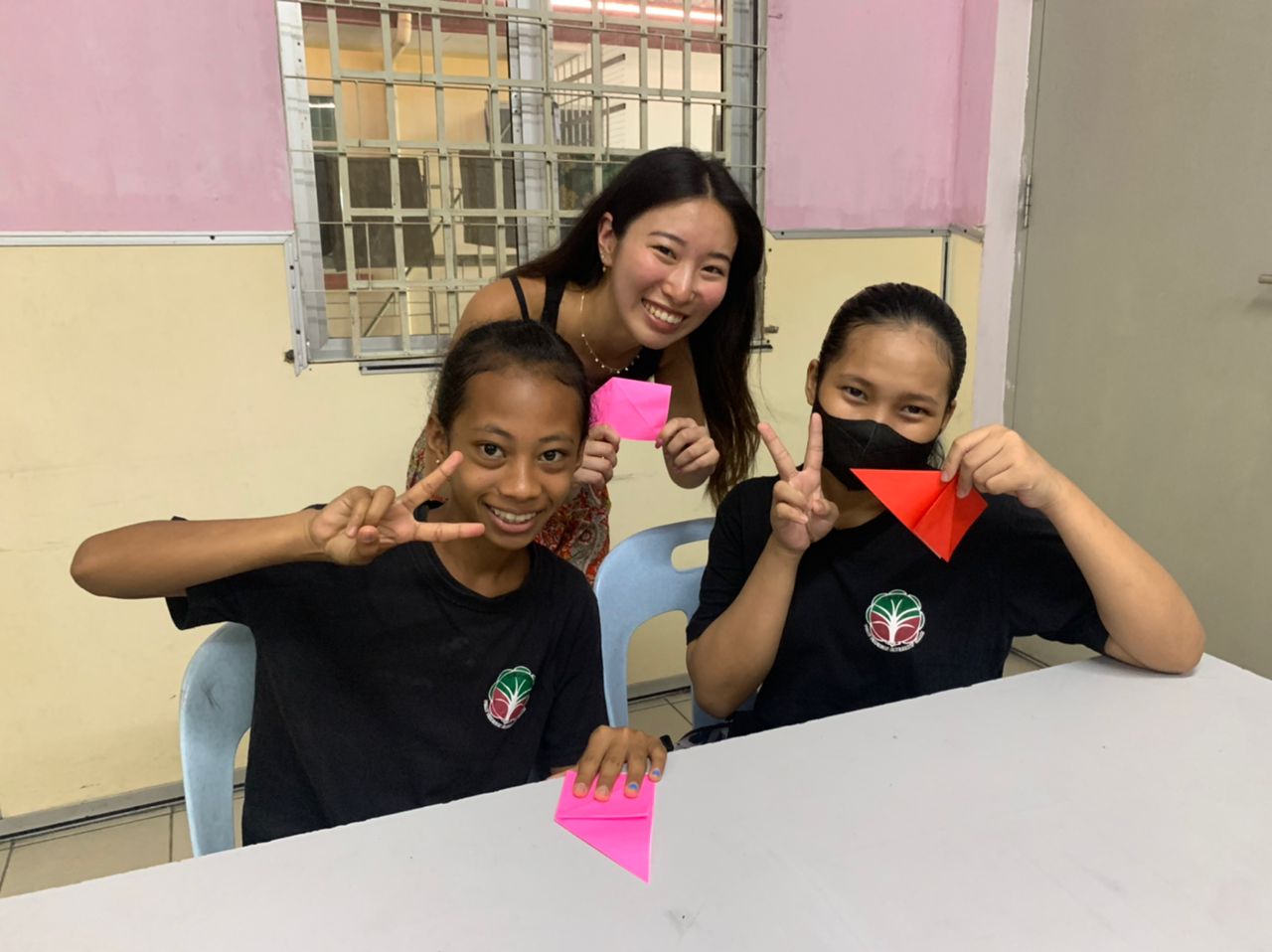
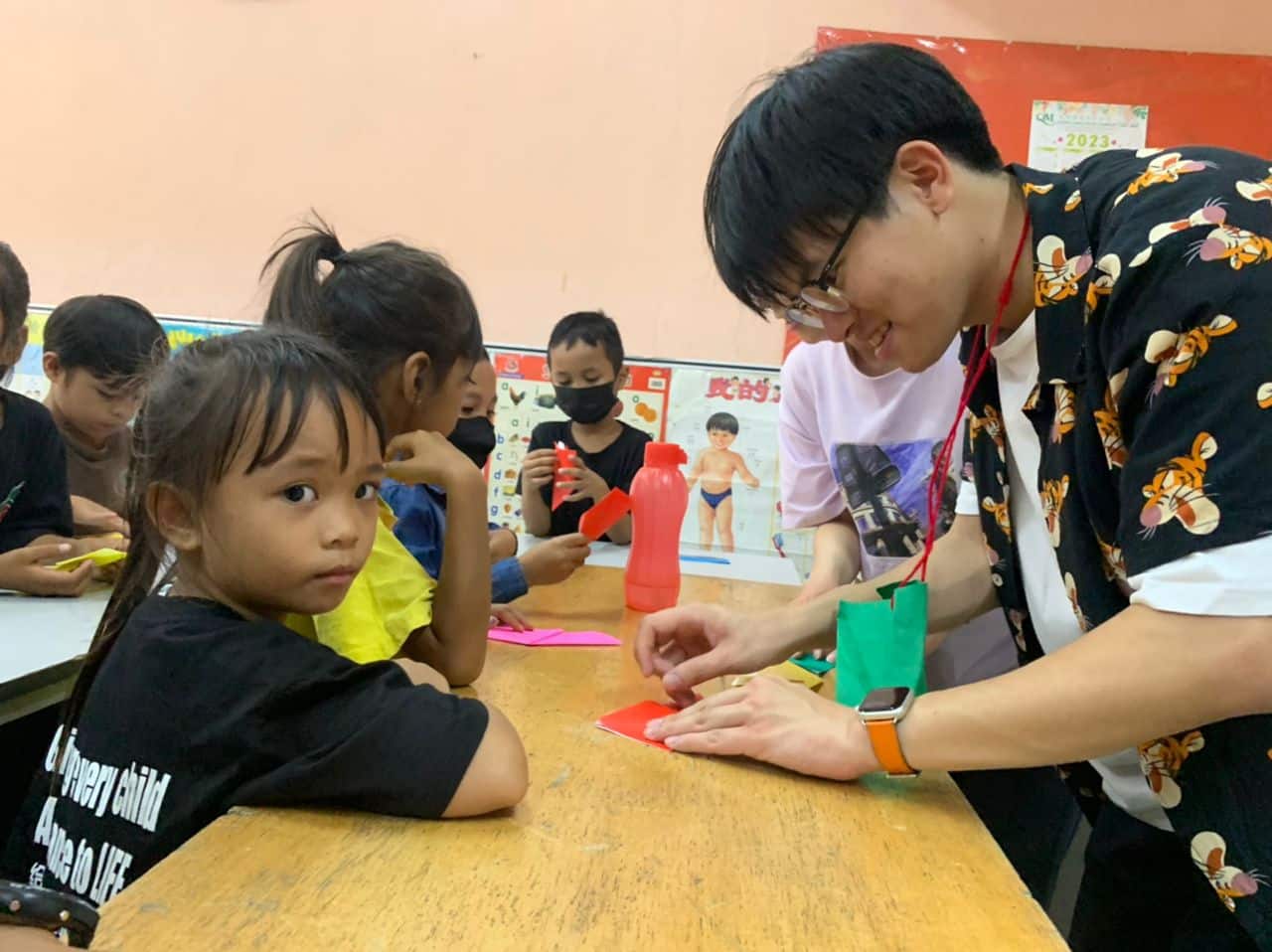
Visitors from Japan engaging with the students.
“Every student has his or her own story, and so many come from broken families.
“We can’t change their families, but we can provide education and make a change in their lives.”
“If we take the time to listen to their stories, we will feel so much more. We can’t change their families, but we can provide education and make a change in their lives,” she said fervently.
As Christians, the call to impact and care for these communities is even more resounding.
“The least we can do is show God’s love to them, and remind them of their intrinsic worth no matter their identity or status,” she said, adding that she is grateful to see many churches in Malaysia rising up in support of stateless children and families.
Her hope for every student who passes through PABG’s doors is that they will know their worth and see that education can provide them with greater opportunities in the future.
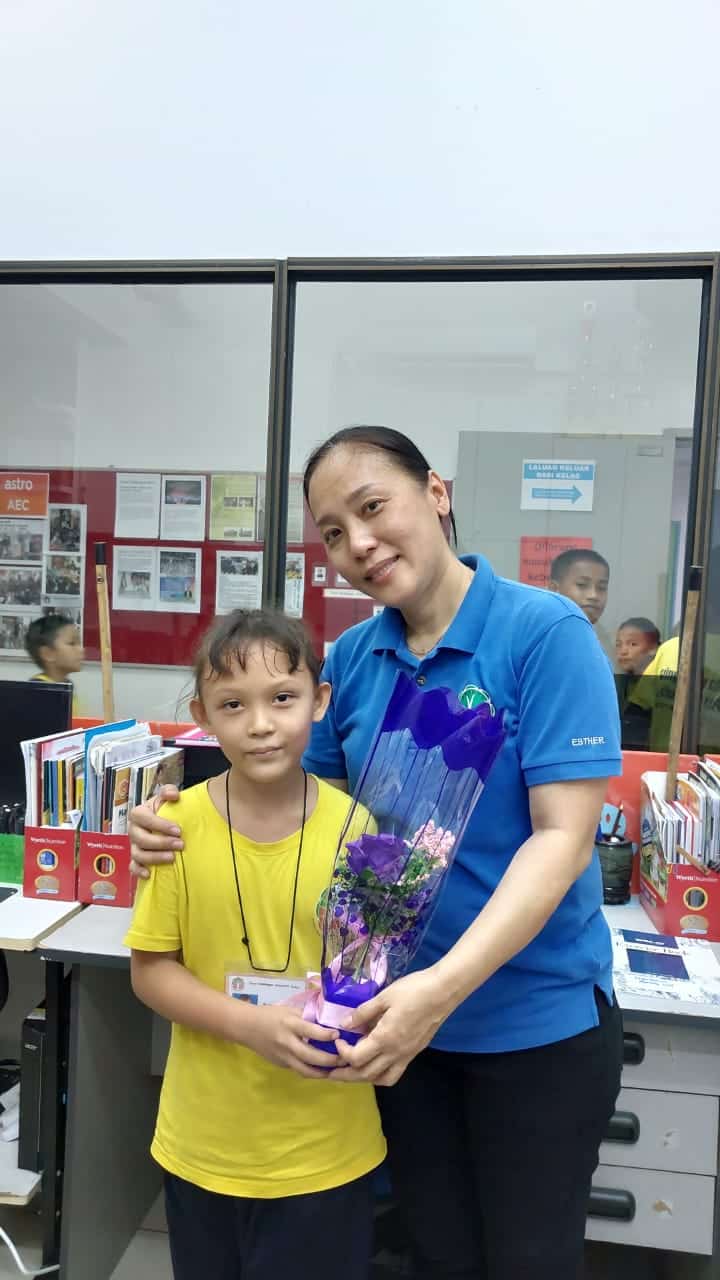
The goal is not to produce top students but rather equip stateless children with the knowledge, skills and resilience needed to forge a future for themselves, said Esther.
“I also pray that every student will be a good person, make positive changes in the lives of their families and pay it forward, supporting others as they too receive a chance at a better future,” she added.
Jesus changes us so we can impact others
“God has promised us a fruitful life, but that doesn’t mean we won’t face challenges and difficulties,” Esther said thoughtfully as she reflected on her personal journey.
“When I’m helping them, I’m helping myself. I am not just teaching, I’m learning all the time from their lives.”
These challenges we go through are great teachers, growing our faith and trust in the Lord and learning to be grateful, she shared.
In walking with these children, she has realised there are so many things she has that others don’t. And teaching is more than just about academic performance, it’s growth in every area – teaching them life values, mindsets and priorities.
Esther challenges Christians to see themselves as a solution, a channel of grace and hope being transformed by God’s love daily.
“When I’m helping them, I’m helping myself. I am not just teaching, I’m learning all the time from their lives,” she says repeatedly.
“Knowing Jesus has given me everlasting peace, and the affirmation that I have found my purpose in life. Now as a follower of Christ, I have to allow Him to change me. Only then can I live to impact and influence others,” she said.
Learn more about Pusat Bimbingan Alternatif Grace (PABG) here.
RELATED STORIES:
Novel Coronavirus: China’s pastors go digital to spur flock on to faith and prayer
“I am moved by the tears of your wife. I will heal you,” Jesus told this dying man
We are an independent, non-profit organisation that relies on the generosity of our readers, such as yourself, to continue serving the kingdom. Every dollar donated goes directly back into our editorial coverage.
Would you consider partnering with us in our kingdom work by supporting us financially, either as a one-off donation, or a recurring pledge?
Support Salt&Light

